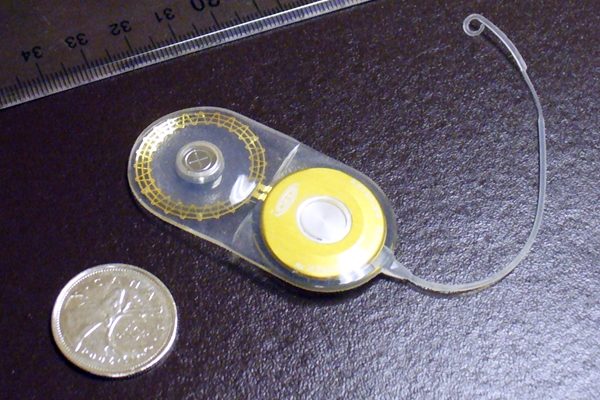13 September 2017. A university spin-off enterprise developing robotics to make cochlear implants for hearing loss safer and more effective is receiving a Small Business Innovation Research, or SBIR, grant to advance its technology. The two-year $1.4 million award to iotaMotion Inc. in Iowa City, Iowa is made by National Institute of Deafness and Other Communication Disorders, part of National Institutes of Health.
IotaMotion is creating a robotics-based system to improve the surgical implanting of cochlear devices in people with hearing loss. Cochlear implants are electronic devices that restore some hearing by performing the functions of cochlear hair cells that convert sound waves into electrical nerve signals, sufficient to understand speech. These devices, however, cannot restore more qualitative hearing abilities, such as differentiating musical tones. Hearing loss affects millions of people worldwide, particularly older adults where the loss of hearing is a result of degenerating sensory cells.
The company’s product, called Iota-Soft, is a robotics device to aid surgeons to insert cochlear implant electrodes. iotaMotion says the system will reduce variability and provide more precision when implanting the electrodes. This greater precision and stability, says the company, will help protect the patient’s existing hearing anatomy, which is important particularly with hearing-preservation solutions that take advantage of residual hearing abilities.
Because iotaMotion already has evidence showing the system’s feasibility, the grant bypasses the usual first stage of SBIR awards indicating proof of concept and commercial viability. The project calls for verifying the company’s technology is open and compatible with existing cochlear implant devices, including current electrodes used with those devices. The work also requires the company to show the system meets FDA quality standards, such as biocompatibility and the ability for cochlear implants to remain functional for at least 6 months following surgery. Meeting these quality standards are expected to help achieve eventual approval by FDA.
In addition, the company plans to conduct tests of the system with larger animals, such as sheep. Those tests will establish the efficacy of the implants over 3 months. Successful completion of the tests are expected to lead to building production facilities that meet FDA quality standards.
IotaMotion was founded in 2015 by Chris Kaufmann, a physician, research fellow, and biomedical engineer in the otolaryngology — ear, nose, and throat — department at University of Iowa medical center in Iowa City. Kaufmann worked in the lab of Iowa otolaryngology professor Marlan Hansen, both a co-inventor of the robotics technology and co-founder of iotaMotion. Kaufmann is the company’s CEO, while Hansen serves as its chief medical officer. The company is also a recipient of a National Science Foundation grant and seed funding of $2 million.
More from Science & Enterprise:
- NIH Funds Heart Tissue Regeneration Tests in Pigs
- Small Business Grant Funds Blood-Brain Barrier Model
- Company, NC State Partner on Tissue Oxygen Patch
- Grant Funds MRI for Mental Illness Understanding
- Small-Business Grants Awarded for Neurological Diseases
* * *


 RSS - Posts
RSS - Posts
You must be logged in to post a comment.